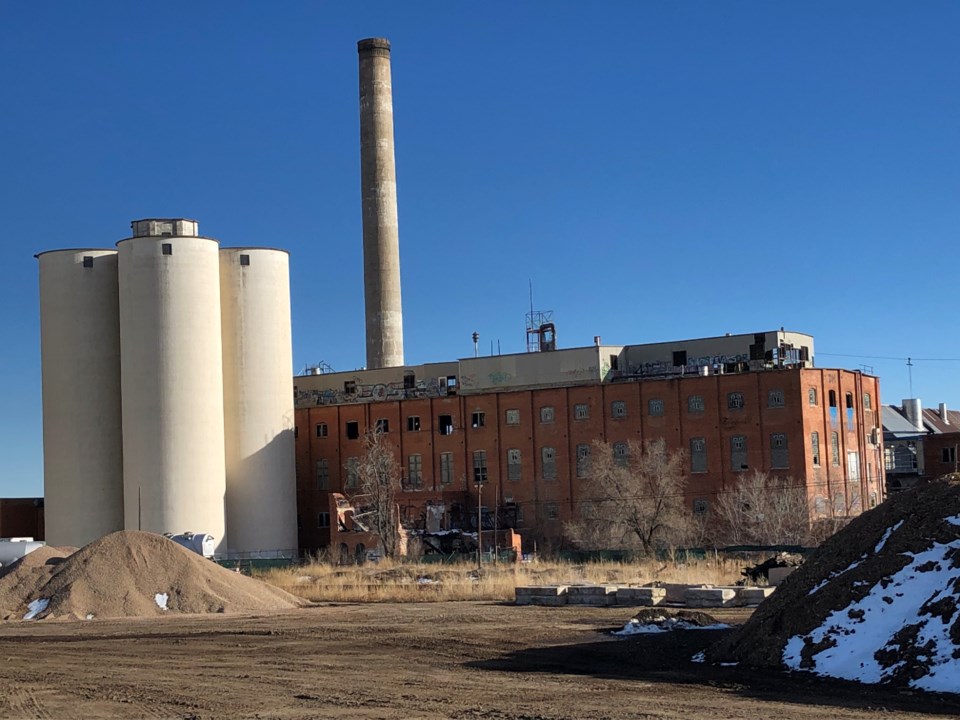Cleaning up the Great Western Sugar Plant will cost as much as $12 million as crews will have to deal with contaminated soil and demolish heavy equipment still in the building, Longmont’s redevelopment director Tony Chacon told the city council Tuesday night.
“Some of the stuff in there is just monstrous,” Chacon told councilors. “It will require some demolition to cut those tanks apart to get them out.”
The city is working with the EPA and the state health department in remediation efforts at the sugar plant, which will be a long term project. “The sugar factory redevelopment will take some time,” Erin Fosdick, city principal planner, told the councilors.
The work at the crumbling, 120-year-old sugar plant was detailed by Chacon as councilors reviewed ongoing plans to redevelop the structure as well as the creation of a Science, Technology, Education and Arts, or STEAM, presence in southeast Longmont.
City staff members and a group of consultants led by Stantec have been studying the 275 acres that encircle the Sugar Plant and STEAM project to create a detailed development plan, Fosdick said.
Stantec senior consultant Nancy Locke told the councilors that community outreach efforts have included an online survey in January, which garnered about 250 responses. The city sponsored a virtual community meeting on March 2, which was attended by 100 community members, a staff report states.
In addition, the development team is partnering with a group of third grade students from Indian Peaks Elementary School, who are providing feedback through a classroom design challenge, Fosdick said.
So far, alternatives for the STEAM area include putting in a cultural center and high density housing as well as a hotel and conference center, Locke said.
Alternatives for the sugar plant include making it an “agri-hub” with a campus that would house research facilities as well as urban greenhouses and office space, Locke told the council.
Any redevelopment will have to include public-private partnerships with existing landowners, Fosdick said. “As we go forward, we will explore what a public-private partnership will be,” she said.



